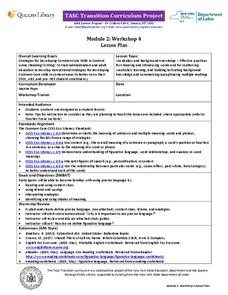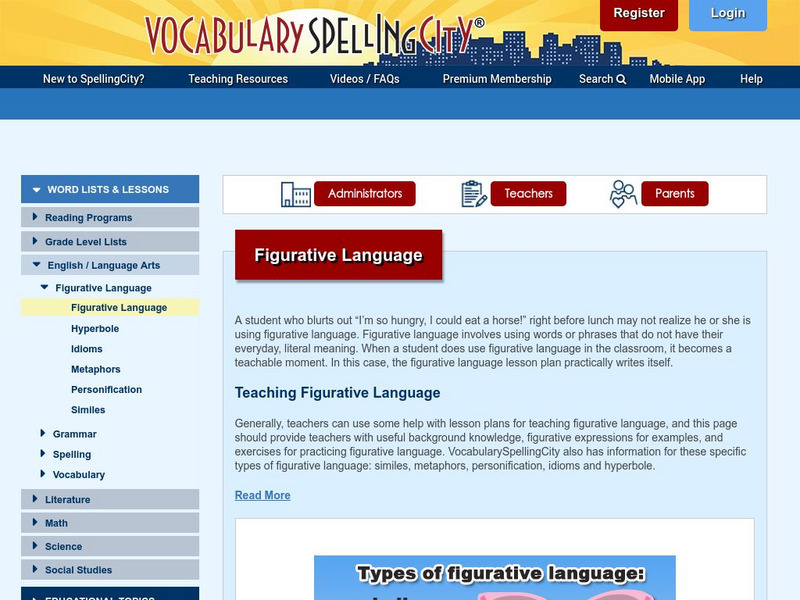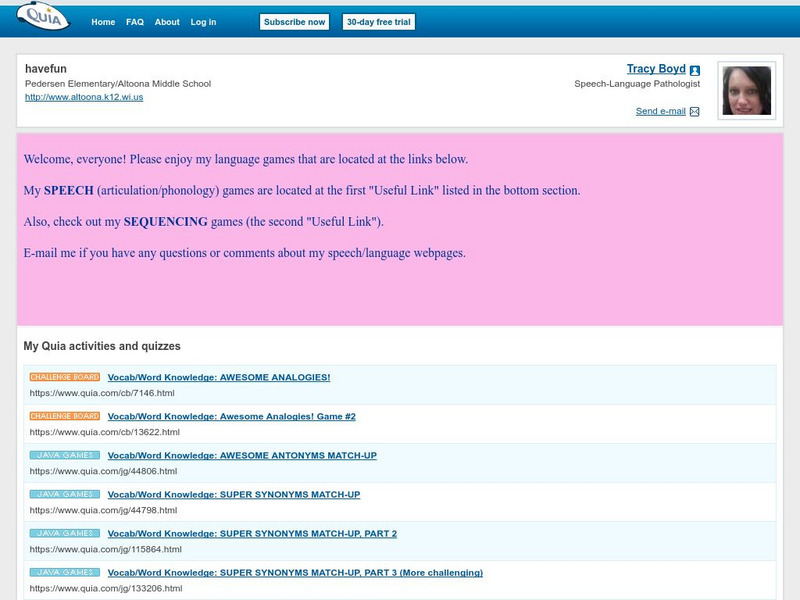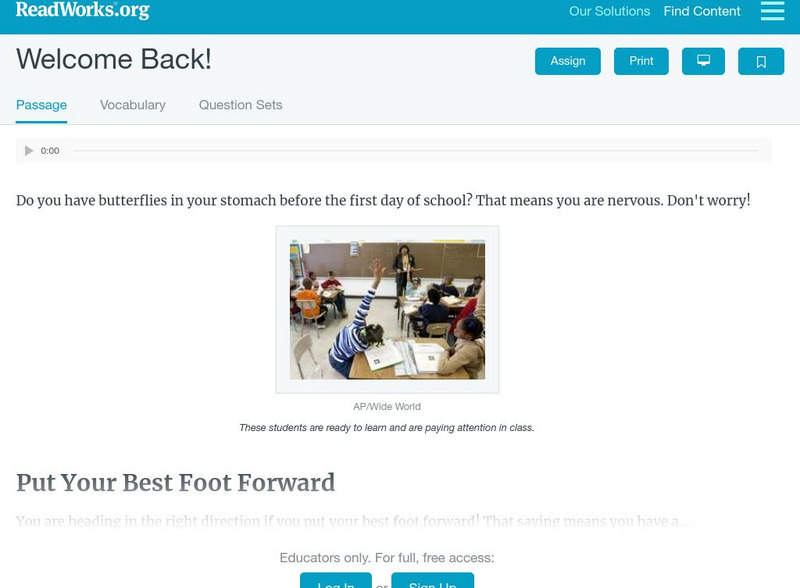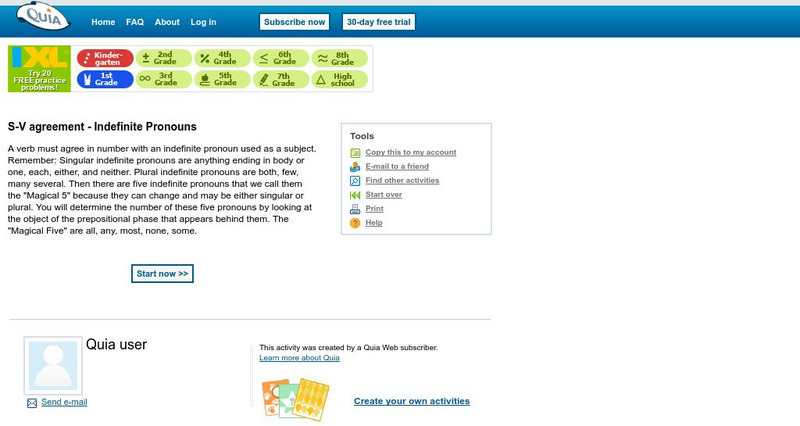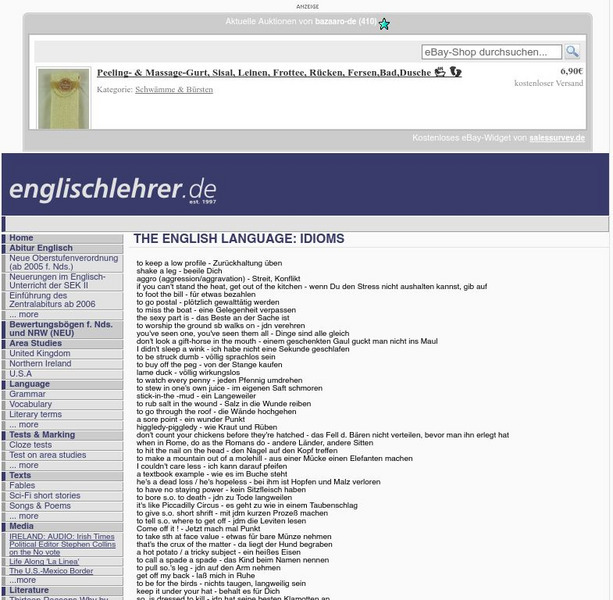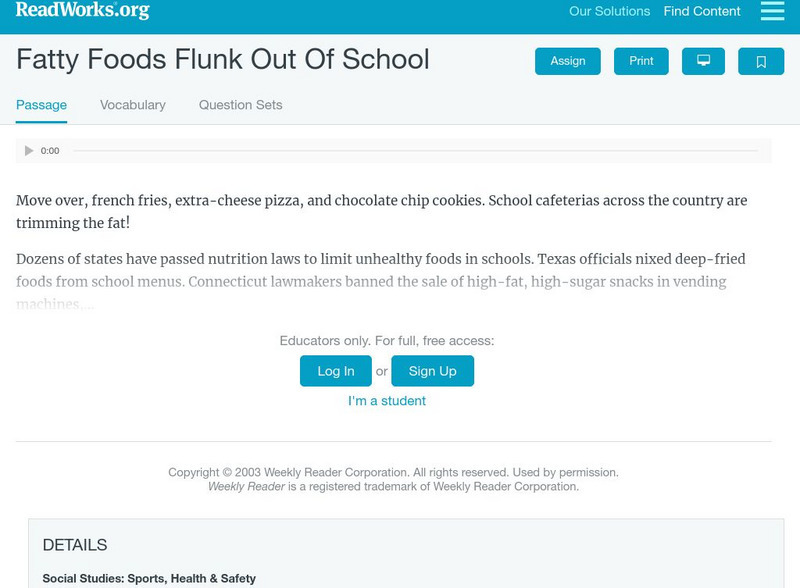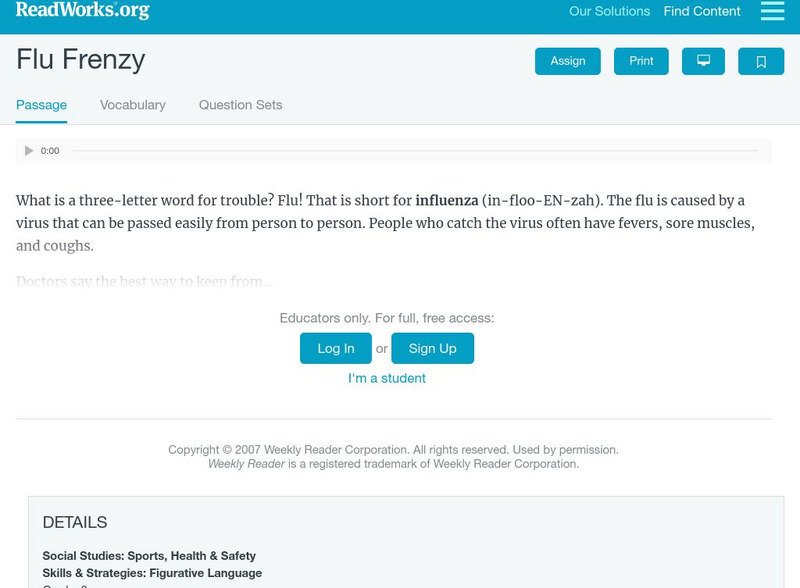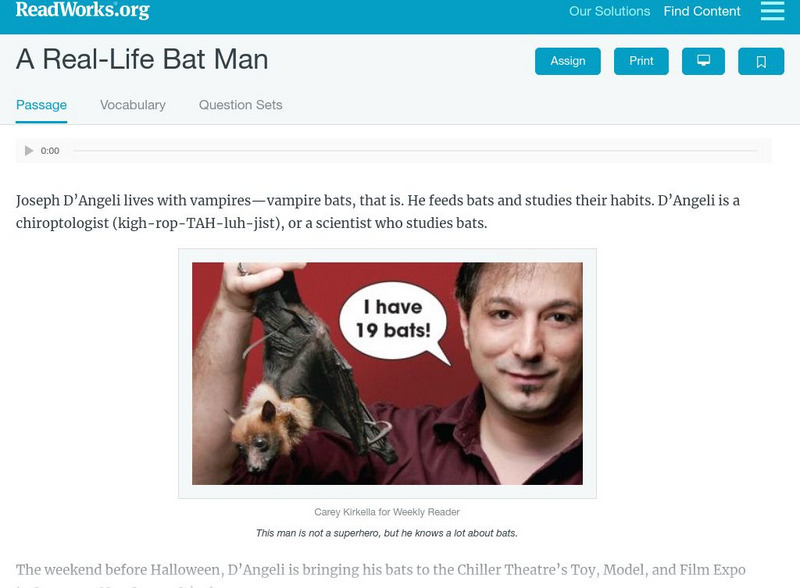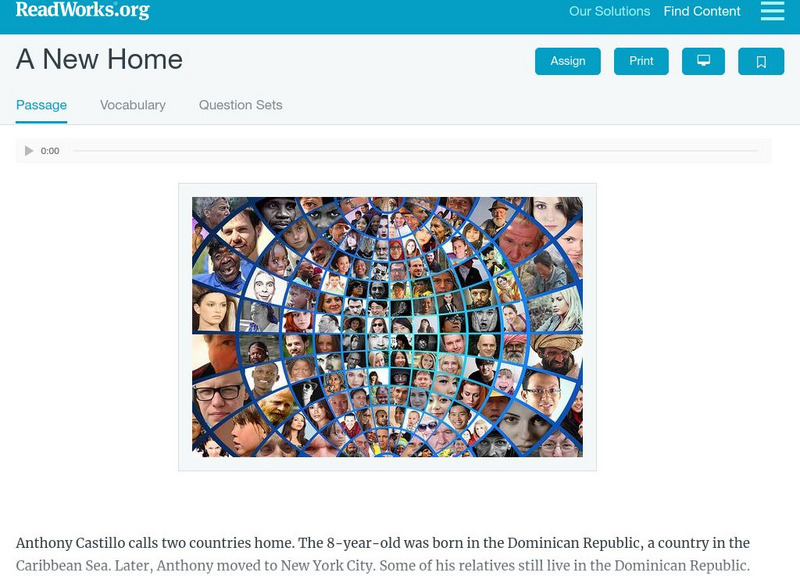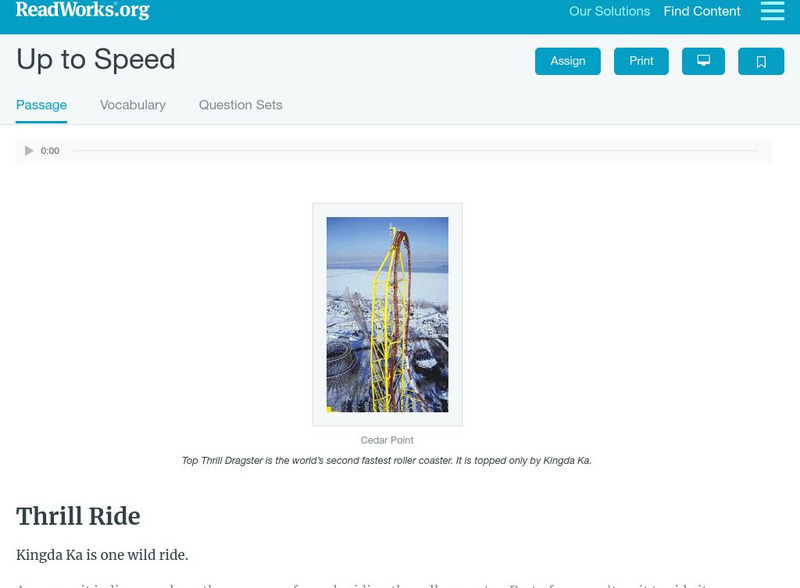New York State Education Department
TASC Transition Curriculum: Workshop 4
Why is it important to use precise language? Participants explore this question in the fourth activity in a series of 15 on effective instruction. Perfect for all content areas, the activity promotes appropriate language choice through...
Vocabulary Spelling City
Spelling City: Figurative Language
This website focuses on figurative language: hyperbole, simile, metaphor, personification, and idioms. It provides lists of examples for each based on three educational levels: elementary, middle school, and high school.
McGraw Hill
Mc Graw Hill: Vocabulary Acquisition and Use: Understand Figurative Language
Explains what similes and metaphors are and how they are alike and different. Provides examples and practice sheets for each.
Reading Rockets
Reading Rockets: Developing Academic Language: Got Words?
This is a research-based article concerning how to best teach academic vocabulary. Research finds that most teachers assign and mention vocabulary, but to be effective, instruction must be direct and meaningful. Recommendations for...
Quia
Quia: Have Fun: My Quia Activities and Quizzes
Have Fun is a collection of links to Quia games, activities, and quizzes covering a variety of language arts topics, such as analogies, synonyms, antonyms, homonyms, sequencing, categorizing, compound words, grammar, sentences, and...
E Reading Worksheets
E Reading Worksheets: Differentiated Reading Instruction Worksheets, Activities
A collection of differentiated reading activities are provided in this collection. Worksheets for the following reading topics are included: climax, story structure, elements of a story; fact and opinion; summarizing, narrative sequence;...
Broward Education Foundation
Broward Education Foundation: The Arts and Crafts of Storytelling [Pdf]
In the Arts and Crafts of Storytelling, American folk heroes come to life, help students expand their vocabulary and increase knowledge of figurative language. Students identify figurative language like similes, idioms and hyperboles....
ClassFlow
Class Flow: Greek Vocabulary
[Free Registration/Login Required] This flipchart lesson contains several activities. History - students understand the chronology of Greek history and can organize events and people into major categories to explain historical...
Read Works
Read Works: Welcome Back!
[Free Registration/Login Required] This passage shares advice about how to make the first day of school a great one. This passage is a stand-alone curricular piece that reinforces essential reading skills and strategies and establishes...
Quia
Quia: Action Verbs
This 26 question quiz has students choose the term that best matches the definition. Java is required.
Quia
Quia: S v Agreement: Indefinite Pronouns
Given the term definition, students are to select the matching literary term in this 40 question quiz that covers 40 literary terms. Java is required.
Georgia Department of Education
Ga Virtual Learning: American Literature; American Romanticism: Vocabulary
This lesson focuses on defining the literary terms in American Romanticism. It features a list of terms and an interactive crossword puzzle using them.
Other
The English Language: Idioms
Idiomatic expressions relating to color, animals, parts of the body and even some German figures of speech.
ClassFlow
Class Flow: Sally Ann Thunder Ann Whirlwind
[Free Registration/Login Required] This flipchart accompanies the story Sally Ann Thunder Ann Whirlwind from the Scholastic Reading Series, Literacy Place for 4th grade. It introduces and discusses the genre of tall tales, vocabulary,...
Sophia Learning
Sophia: Using Contextual Story Clues
This lesson explains how to use contextual story clues to determine the meaning of unknown vocabulary. This tutorial lesson shares a short slideshow with the lesson's content. RL.11-12.4 Words/Context/Story, L.11-12.4a Words/Context
Read Works
Read Works: Fleeing Goma
[Free Registration/Login Required] This passage shares the devastating effects from a volcanic eruption in the city of Goma in the Democratic Republic of the Congo This passage is a stand-alone curricular piece that reinforces essential...
Read Works
Read Works: Fatty Foods
[Free Registration/Login Required] This informational text passage discusses the effects of fattening foods. This passage is a stand-alone curricular piece that reinforces essential reading skills and strategies and establishes...
Read Works
Read Works: Flu Frenzy
[Free Registration/Login Required] This nonfiction passage discusses influenza and the importance of preventing an epidemic of a flu outbreak. This passage is a stand-alone curricular piece that reinforces essential reading skills and...
Read Works
Read Works: Couch Potato Central
[Free Registration/Login Required] This informational text passage shares facts about childhood obesity. This passage is a stand-alone curricular piece that reinforces essential reading skills and strategies and establishes scaffolding...
Read Works
Read Works: A Real Life Bat Man
[Free Registration/Login Required] This passage describes the responsibilities of a chiroptologist, a person who studies bats for a living. This passage is a stand-alone curricular piece that reinforces essential reading skills and...
Read Works
Read Works: A New Home
[Free Registration/Login Required] This nonfiction passage shares information about the topic of immigration. This passage is a stand-alone curricular piece that reinforces essential reading skills and strategies and establishes...
ArtsNow
Arts Now Learning: Moon Phaser [Pdf]
In this activity, 4th graders will study the moon for a period of one month and learn to identify each major moon phase. They will then describe the moon through poems, haikus, and similes.
Read Works
Read Works: Up to Speed
[Free Registration/Login Required] An informational text about the science behind roller coasters, including Kingda Ka, one of the tallest and fastest roller coasters in the world. A question sheet is available to help students build...
McGraw Hill
Mc Graw Hill: How to Use Strategies to Teach Students to Access Complex Texts
In this short video, the strategies of summarizing, clarifying, and asking-answering questions are used. These instructional tools will help teachers show students how to access complex texts. [5:54] CCSS.ELA-Literacy.CCRA.R.10
